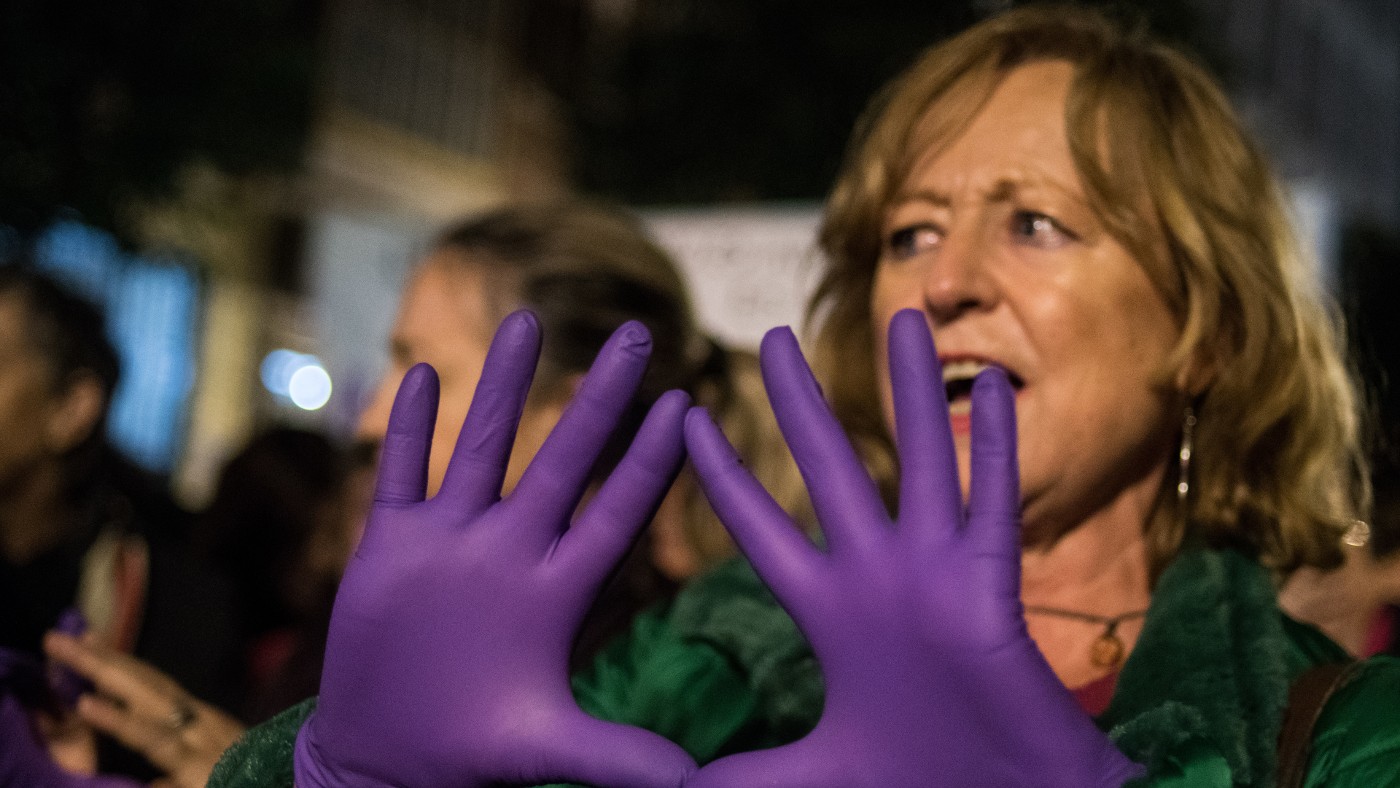‘Only yes means yes’: Spain’s new sexual consent law
Legislation follows outcry over gang-rape case which made global headlines in 2016

A free daily email with the biggest news stories of the day – and the best features from TheWeek.com
You are now subscribed
Your newsletter sign-up was successful
Spain has approved a new law that requires an explicit expression of consent in sexual relations. The legislation – widely known as the “only yes means yes” law – passed with 205 votes in favour, 141 against and three abstentions.
MPs from the conservative People’s Party and the far-right Vox voted against the law, but its successful passage was described as “a victorious day after many years of struggle” by Irene Montero, Spain’s equality minister.
What is the legislation?
Until now, rape survivors in Spain needed to prove that they had been subjected to violence or intimidation, reported the English-language news site The Local.
The Week
Escape your echo chamber. Get the facts behind the news, plus analysis from multiple perspectives.

Sign up for The Week's Free Newsletters
From our morning news briefing to a weekly Good News Newsletter, get the best of The Week delivered directly to your inbox.
From our morning news briefing to a weekly Good News Newsletter, get the best of The Week delivered directly to your inbox.
Under the new legislation, consent must be affirmative and cannot be assumed to have been given by default, passivity or silence. “Only yes means yes” removes “the distinction between sexual abuse and sexual aggression (rape) by making explicit that consent is the deciding factor”, explained The Guardian.
The law states that “consent can only be considered consent when it has been freely manifested through actions that, in accordance with the circumstances, clearly express the person’s wishes”.
The legislation has been hailed as a victory for survivors of rape and for campaigners who pushed for reform.
What triggered the new law?
The new law was drawn up after five men raped an 18-year-old woman during the 2016 bull-running festival in Pamplona, a notorious crime that has since become known as the “wolf pack” attack.
A free daily email with the biggest news stories of the day – and the best features from TheWeek.com
The defence argued in court that video footage from the men’s phones – showing the woman immobile and with her eyes shut during the attack – was proof of consent.
The court acquitted all five men of rape, finding them guilty of the lesser crime of sexual abuse because the men had not used violence to coerce the woman into the act. They were sentenced to just nine years in prison instead of the 22 to 25 years demanded by the prosecution, reported Meaghan Beatley in The Guardian in 2019
After a public outcry, the charge was changed to rape and the sentence increased to 15 years. In a separate case that occurred soon after the “wolf pack” attack, five men accused of raping a 14-year-old girl were also convicted of the lesser charge of sexual abuse on the grounds that the victim was under the influence of drugs and alcohol.
In a statement, the mother of the 2016 rape survivor said the passing of the “only yes means yes” law was “the result of the bravery, perseverance and dignity of a girl who knew how she wanted to live without being judged by anyone” and “who decided to go ahead so that we would all be aware of the miserable road that too many victims have had to, and continue to, go down”.
How does it compare to laws in other countries?
Only 12 European countries – Belgium, Croatia, Cyprus, Denmark, Germany, Greece, Iceland, Ireland, Luxembourg, Malta, Sweden and the UK – out of 31 analysed by Amnesty International define rape as sex without consent.
Under the UK’s Sexual Offences Act of 2003, said Rape Crisis, “if someone says ‘no’ to any kind of sexual activity, they are not agreeing to it”. The charity adds that “it doesn’t matter if someone doesn’t have visible injuries or if they didn’t scream, try to run away or fight” as “if a person doesn’t consent to sexual activity of any kind then it is always sexual violence”.
Breakthroughs in some of the countries were relatively recent: Denmark passed a law similar to Spain’s in 2020, while Greece did so in 2019 and Sweden in 2018.
Chas Newkey-Burden has been part of The Week Digital team for more than a decade and a journalist for 25 years, starting out on the irreverent football weekly 90 Minutes, before moving to lifestyle magazines Loaded and Attitude. He was a columnist for The Big Issue and landed a world exclusive with David Beckham that became the weekly magazine’s bestselling issue. He now writes regularly for The Guardian, The Telegraph, The Independent, Metro, FourFourTwo and the i new site. He is also the author of a number of non-fiction books.